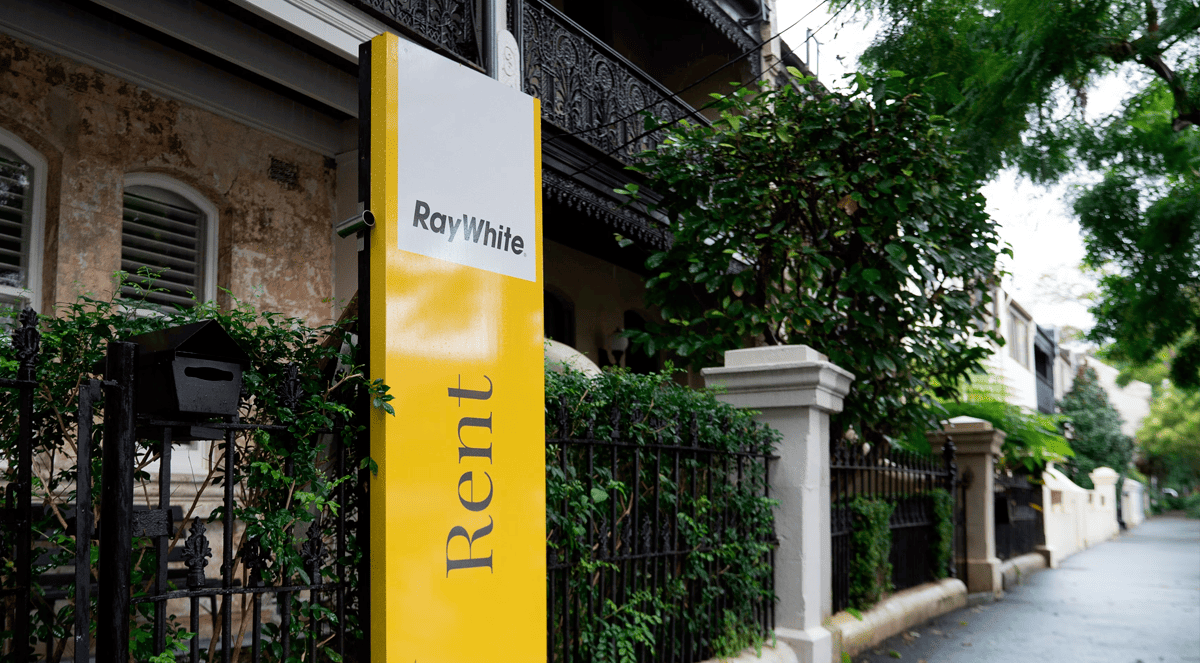Features > Property Education > Financial Advice
Decoding Property Contract Jargon: A Guide to Understanding Legal Lingo

Buying or selling a property in Australia involves navigating a sea of legal terms and jargon that can leave anyone feeling overwhelmed.
But understanding property contract jargon is crucial to ensure you make informed decisions and protect your interests in real estate transactions.
Luckily, we’ve facilitated hundreds of property transactions, so we’re armed with the knowledge to demystify some common property contract jargon used in Australia.
Read on to discover what these terms mean.
- Vendor
The vendor is the person or entity selling the property. In legal terms, they are the party offering the property for sale.
- Purchaser
The purchaser is the individual or entity buying the property. This term refers to the buyer in the transaction.
- Contract of Sale
The contract of sale is the legally binding agreement between the vendor and purchaser that outlines the terms and conditions of the property sale, including the purchase price and settlement details.
- Settlement
Settlement is the final stage of a property transaction when the ownership of the property is transferred from the vendor to the purchaser. It involves the payment of the purchase price and completion of all legal paperwork.
- Conveyancer/Solicitor
A conveyancer or solicitor is a legal professional who specializes in property law and is responsible for handling the legal aspects of the property transaction, including preparing and reviewing contracts, conducting title searches, and facilitating settlement.
- Deposit
The deposit is a portion of the purchase price paid by the purchaser as a sign of commitment and to secure the property. It is typically paid upon signing the contract of sale.
- Cooling-off Period
The cooling-off period is a specified timeframe after the contract of sale is signed during which the purchaser can withdraw from the sale without any significant financial penalties. The length of the cooling-off period may vary.
- Title
The title refers to the legal document that proves ownership of the property. It includes details such as the property boundaries, ownership details, and any encumbrances.
- Easement
An easement is a legal right allowing someone to use or access a portion of another person's land for a specific purpose, such as drainage, utilities, or access.
- Caveat
A caveat is a legal notice registered on the title of a property to protect the interest of a party with a legal claim or interest in the property, such as a purchaser or lender.
- Strata Title
A strata title is a form of property ownership where individuals own a portion (e.g., an apartment) and share ownership of common areas within a building complex or development.
- Body Corporate
A body corporate is a legal entity that manages and oversees the common areas and facilities in a strata-titled property, responsible for maintenance and administration.
- Rescission
Rescission is the legal act of canceling or terminating a contract, usually due to a breach of contract or other agreed-upon conditions.
Understanding these fundamental property contract jargon terms in Australia will help you navigate the property buying and selling process with confidence.
If you're unsure about any terms or clauses in a contract, it's essential to consult with a legal professional to ensure you fully grasp the implications before proceeding.
Purchasing or selling a property is a significant financial transaction that requires careful consideration and understanding of the legal terms involved.
Educating yourself about property contract jargon is a vital step towards making informed decisions and protecting your interests in the real estate market.
If you want to gain a deeper understanding of the Australian property market, get expert advice from a Freedom Property specialist today at https://www.freedompropertyinvestors.com.au/contact
Stay Up to Date
with the Latest Australian Property News, Insights & Education.




.png?width=292&height=292&name=Copy%20Link%20(1).png)
 SIGN UP FOR FREE NEWSLETTER
SIGN UP FOR FREE NEWSLETTER








%20Scott%20Kuru%20DPU%20141.jpg?width=1920&height=1080&name=The%20Senate%20Just%20Exposed%20Australias%20Biggest%20$80%20Billion%20Housing%20Fraud%20(Inquiry%20Launched)%20Scott%20Kuru%20DPU%20141.jpg)




%20Scott%20Kuru%20DPU136.jpg?width=1920&height=1080&name=Aussies%20Just%20Got%20Hit%20With%20Double%20Taxes%20on%20Everything%20(This%20Has%20Gone%20Too%20Far)%20Scott%20Kuru%20DPU136.jpg)


%20Scott%20Kuru%20DPU%20133.jpg?width=1920&height=1080&name=JUST%20IN%20Something%20Major%20Just%20Flipped%20Australia%E2%80%99s%20Property%20Market%20for%202026%20(No%20One%20Saw%20This%20Coming)%20Scott%20Kuru%20DPU%20133.jpg)


.jpg?width=1920&height=1080&name=Rental%20Prices%20At%20Record%20Highs%20And%20Vacancy%20Rates%20At%20All%20Time%20Lows%20(New%20Data%20Reveals).jpg)
%20%20DPU%20EP%2014.jpg?width=1920&height=1080&name=Investors%20Shutting%20Out%20First%20Home%20Buyers%20(Investors%20At%20Record%20Highs)%20%20DPU%20EP%2014.jpg)

.jpg?width=1920&height=1080&name=Darwins%20Property%20Market%20Boom%20or%20Dangerous%20Gamble%20(REVEALED).jpg)

.jpg?width=1920&height=1080&name=The%20RBA%E2%80%99s%20Rate%20Cut%20Could%20Explode%20House%20Prices%20(Here%E2%80%99s%20Why).jpg)








.jpg?width=1920&height=1080&name=Warning%2c%20You%20Might%20Be%20Facing%20Higher%20Taxes%20Soon%20(1).jpg)




.png?width=1920&height=1080&name=Rate%20Drops%20Signal%20BIGGEST%20Property%20Boom%20in%20DECADES%20(1).png)

.jpg?width=1920&height=1080&name=Labor%20vs%20Liberal%20These%20Housing%20Policies%20Could%20Change%20the%20Property%20Market%20Forever%20(1).jpg)
.jpg?width=1920&height=1080&name=QLD%20Slashes%20Stamp%20Duty%20Big%20News%20for%20Investors%20%26%20Home%20Buyers%20(1).jpg)
.jpg?width=1920&height=1080&name=Trump%20Just%20Slapped%20Tariffs%20%E2%80%93%20Here%E2%80%99s%20What%20It%20Means%20for%20Australia%20(1).jpg)
.jpg?width=1920&height=1080&name=Federal%20Budget%202025%20More%20Debt%2c%20No%20Housing%20%E2%80%93%20Here%E2%80%99s%20What%20You%20Need%20to%20Know%20(1).jpg)
.jpg?width=1920&height=1080&name=Australias%20Housing%20Crisis%20is%20about%20to%20get%20MUCH%20Worse%20(New%20Data%20Warns).jpg)
%20(1).jpg?width=1920&height=1080&name=Australias%20RENTAL%20CRISIS%20Hits%20ROCK%20BOTTOM!%20(2025%20Update)%20(1).jpg)
%20(1).png?width=1920&height=1080&name=Is%20Adelaide%20Still%20a%20Good%20Property%20Investment%20(2025%20UPDATE)%20(1).png)
.jpg?width=1920&height=1080&name=RBA%20Shocks%20with%20Rate%20Cuts!%20What%E2%80%99s%20Next%20for%20Property%20Investors%20(1).jpg)
%20(1).jpg?width=1920&height=1080&name=I%20Predict%20The%20Feb%20Rate%20Cut%20(My%20Price%20Growth%20Prediction)%20(1).jpg)
.png?width=1920&height=1080&name=Why%20Property%20Prices%20Will%20Rise%20in%202025%20Market%20Predictions%20(1).png)
.jpg?width=1920&height=1080&name=Why%20Investors%20Are%20Choosing%20Apartments%20Over%20Houses%202%20(1).jpg)
.jpg?width=1920&height=1080&name=Why%20Rate%20Cuts%20Will%20Trigger%20A%20Property%20Boom%20(1).jpg)
.jpg?width=1920&height=1080&name=Retire%20On%202Million%20With%20One%20Property%20(Using%20SMSF).jpg)
.jpg?width=1920&height=1080&name=4%20Reasons%20Why%20You%20Should%20Invest%20in%20Melbourne%20Now%20(1).jpg)
%20(1).jpg?width=1920&height=1080&name=Old%20Property%20vs%20New%20Property%20(Facts%20and%20Figures%20Revealed)%20(1).jpg)
%20(1).jpg?width=1920&height=1080&name=Will%20The%20New%20QLD%20Govt%20Create%20a%20Property%20Boom%20or%20Bust%20(My%20Prediction)%20(1).jpg)
%20Scott%20Kuru%20(1).jpg?width=1920&height=1080&name=Inflation%20Hits%20Three-Year%20Low%20(Will%20RBA%20Cut%20Rates%20Soon)%20Scott%20Kuru%20(1).jpg)
.jpg?width=1920&height=1080&name=How%20to%20Buy%20Investment%20Property%20Through%20SMSF_%20The%20Ultimate%20Guide%20(1).jpg)
.jpg?width=1920&height=1080&name=Victoria%20Slashes%20Stamp%20Duty%20Melbourne%20Set%20to%20Boom%20Scott%20Kuru%20(1).jpg)
.png?width=1571&height=861&name=Are%20Foreign%20Buyers%20Really%20Driving%20Up%20Australian%20Property%20Prices%20(1).png)
.jpg?width=1920&height=1080&name=The%20Single%20Factor%20That%20Predicts%20Property%20Growth%20Regions%20(1).jpg)
%20Scott%20Kuru%20(1).jpg?width=1920&height=1080&name=My%20Prediction%20On%20Rates%20%26%20Negative%20Gearing%20(Market%20Crash)%20Scott%20Kuru%20(1).jpg)

-1.png?width=1920&height=1080&name=Major%20Banks%20Cut%20Rates%20Will%20RBA%20Follow%20Suit%20(Sept%20Rate%20Update)-1.png)
%20Scott%20Kuru-1.png?width=1920&height=1080&name=Rate%20Cut%20Coming%20What%20New%20Zealands%20Move%20Means%20for%20Australia%20(Sept%20Prediction)%20Scott%20Kuru-1.png)
%20(1).jpg?width=1920&height=1080&name=Buy%20when%20the%20interest%20rates%20are%20high!%20(Why%20you%20must%20buy%20now!)%20(1).jpg)
.jpg?width=1920&height=1080&name=Carms_Revised%20Taxes%20Due%20Aug%209%20YT%20Thumbnail02%20(1).jpg)
.jpg?width=1920&height=1080&name=Carms_Too%20Little%20Too%20Late%20Aug%207%20YT%20Thumbnail01%20(1).jpg)









.jpg?width=1920&height=1080&name=Carms_Rate%20Drop%20In%20July%20Jun%2010%20YT%20Thumbnail02%20(1).jpg)
.jpg?width=1920&height=1080&name=Carms_Own%20a%20Property%20V6%20Jun%205_YT%20Thumbnail%20(1).jpg)









.png?width=1920&height=1080&name=Artboard%201%20(3).png)






.jpg?width=1920&height=1080&name=YT%20thumbnail%20%20(1).jpg)

